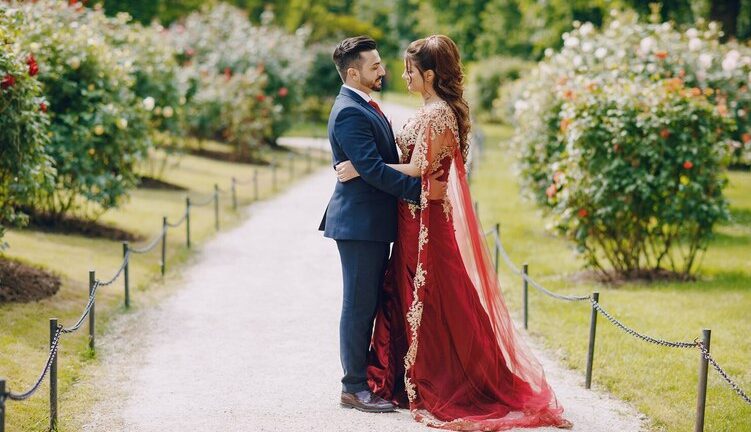Crafting a memorable wedding speech is an art, an opportunity to weave tales of love and laughter into a tapestry that forever graces this special day. Want to make a wedding speech memorable, but no idea how to write a wedding speech? Just imagine the soft glow of twinkling lights, the gentle hum of anticipation, and the air thick with love. Standing before your loved ones, ready to honor the happy couple with a heartfelt speech.
It’s a moment that tugs at the heartstrings and demands words that shimmer with emotion and authenticity. Whether you’re the best friend, the proud parent, or the cherished sibling, let’s dive into the artistry of penning a speech that leaves a lasting imprint on hearts and memories.
How to Understand the Audience?
It is a crucial aspect of delivering a memorable wedding speech. Here’s an in-depth look at how to comprehend and engage your audience effectively:
1. Knowing Your Crowd
- Personalization: Tailor your speech to the couple and the audience. Consider the couple’s personalities, their journey, and shared experiences. Acknowledge the relationships the couple has with those present.
- Research: If you’re unfamiliar with certain guests or traditions, do some background research. Knowing cultural or familial nuances can help you avoid unintentional missteps and make your speech more inclusive.
- Connect Emotionally: Identify common threads that bind the guests and the couple. Highlight shared experiences or anecdotes that resonate universally.
2. Cultural Sensitivity
- Respect Traditions: You should always be mindful of cultural or religious customs. Respect and incorporate traditions that hold significance for the couple or their families.
- Language and Humor: Understand what might be acceptable or inappropriate in terms of language or humor. Be sensitive to cultural differences, avoiding jokes or references that might be misunderstood or offensive.
- Inclusivity: Embrace diversity within the audience. Speak in a way that includes everyone, ensuring that the speech is relatable and engaging for all present.
3. Tips for Engagement
- Survey the Audience: Gauge the mood of the audience. Are they more inclined towards humor or sentimentality? Adjust your speech accordingly to resonate with their preferences.
- Interactive Elements: Consider involving the audience in small ways, like asking for a toast or a shared memory. This engagement fosters a sense of community and involvement.
- Adapt in Real-Time: Stay flexible during the speech. If you notice particular reactions or interests from the audience, adjust your content on the go to maintain their engagement.
4. Addressing Diverse Relationships
- Acknowledge Diverse Connections: Recognize the different relationships the guests have with the couple. Mention parents, siblings, friends, and colleagues, making everyone feel included.
- Tone and Depth: Vary the depth of your speech based on the relationship. A best friend’s speech might delve into more personal anecdotes compared to a colleague’s speech, which might focus more on shared professional experiences.
- Inclusivity in Language: Use inclusive language that resonates with various age groups, avoiding overly niche references that might alienate certain demographics.
It involves sensitivity, adaptability, and a deep appreciation for the diverse relationships and backgrounds present at the wedding. Tailoring your speech accordingly will ensure that everyone feels connected and included in this beautiful celebration of love.
Structure of a Great Wedding Speech

Structuring a wedding speech effectively can transform it into a beautiful, engaging tribute. Here’s a detailed breakdown of crafting a well-structured speech:
1. Opening
- Gracious Greetings: Start by warmly welcoming the guests and thanking them for being part of this special day. Acknowledge the significance of the occasion and express gratitude on behalf of the couple.
- Setting the Tone: Set a positive and celebratory atmosphere. Engage the audience with a captivating opening line or a brief, light-hearted anecdote to grab their attention.
2. Body
- Personal Anecdotes: Share heartfelt stories about the couple that resonate with the audience. Choose anecdotes that highlight their journey together, showcasing their love, quirks, challenges, and triumphs.
- Heartfelt Sentiments: Express your emotions genuinely. Offer well wishes and blessings for the couple’s future. Speak from the heart, conveying your love, admiration, and support.
- Humorous Touches: Sprinkle in tasteful humor to keep the speech engaging. Humor can lighten the mood and add a delightful touch to the storytelling. However, ensure the humor aligns with the couple’s personalities and is sensitive to the audience.
3. Conclusion
- Toasting the Couple: Raise a heartfelt toast to the couple’s love and future happiness. This signifies the culmination of your speech and allows everyone to join in celebrating the couple.
- Closing Remarks: Summarize the essence of your speech. Reiterate your well-wishes and gratitude, leaving the audience with a lasting, positive impression.
4. Tips for Crafting Each Section
- Balance and Flow: Maintain a balance between humor, sentimentality, and brevity. Ensure a smooth transition between sections, creating a cohesive flow throughout the speech.
- Embrace Authenticity: Be genuine and sincere. Speak from your heart, using language that feels authentic to you and resonates with the couple and audience.
- Relevance to the Couple: Ensure that every story, sentiment, or joke directly relates to the couple, avoiding tangents or topics that might not resonate with them.
- Practice and Timing: Rehearse your speech to gauge its length and timing. Aim for a concise yet impactful delivery, respecting the allotted time for speeches during the wedding.
- Visualize Impact: Visualize the impact of each section. A strong opening captivates the audience, a heartfelt body resonates deeply, and a poignant conclusion leaves a lasting impression.
Structuring a wedding speech involves storytelling finesse, emotional depth, and a thoughtful arrangement of anecdotes and sentiments. Crafting each section with care ensures your speech becomes a cherished part of the couple’s special day.
Tips for Writing a Compelling Speech

Crafting a compelling wedding speech involves several key strategies and approaches to ensure its impact and resonance. Here’s a detailed exploration of tips for writing an engaging and heartfelt speech:
1. Authenticity and Personal Touch
- Know Your Voice: Write in your voice and style. Authenticity is key; it helps you connect better with the audience and the couple.
- Personal Anecdotes: Share specific and meaningful stories about the couple. These anecdotes should highlight their unique bond, showcasing your connection with them.
2. Emotion and Sincerity
- Express Genuine Emotions: Don’t shy away from expressing emotions. Whether it’s joy, gratitude, or love, sincerity resonates deeply and creates a memorable impact.
- Use Imagery and Descriptions: Paint vivid pictures with your words. Describe moments or qualities of the couple that evoke emotions and create lasting impressions.
3. Structure and Clarity
- Clear Structure: Organize your speech into distinct sections—introduction, body, and conclusion. Each section should have a clear purpose and flow seamlessly into the next.
- Logical Progression: Ensure a logical progression of ideas. Transition smoothly between anecdotes, sentiments, and toasts, maintaining a cohesive narrative.
4. Humor and Tact
- Tasteful Humor: Inject humor but be mindful of the audience and tone. Keep jokes light-hearted, ensuring they align with the couple’s personalities and avoid any potentially offensive material.
- Balancing Sentiment and Humor: Create a balance between sentimentality and humor. Allow for moments of laughter and lightness without overshadowing the emotional essence of the speech.
5. Relevance and Conciseness
- Focus on the Couple: Keep the focus on the couple. Avoid digressing into unrelated stories or topics that might dilute the impact of your speech.
- Conciseness is Key: Be mindful of time constraints. Aim for a concise yet impactful speech, ensuring you cover meaningful aspects without exceeding the allotted time.
6. Practice and Preparation
- Rehearse Aloud: Practice your speech multiple times. This not only helps in refining the content but also improves your delivery, tone, and timing.
- Feedback and Revision: Seek feedback from trusted friends or family members. Revise your speech based on their input, refining it for clarity and emotional resonance.
7. Emotional Resonance and Closure
- Evoke Emotions: Connect with the audience’s emotions. Engage their hearts with stories and sentiments that resonate universally.
- Closing with Impact: End your speech on a high note. Summarize the essence of your message and offer a heartfelt toast, leaving a lasting impression on the couple and guests.
Crafting a compelling wedding speech involves a delicate balance of personal connection, emotional depth, storytelling finesse, and thoughtful preparation.
Examples and Inspirations
While I can’t provide full speeches here, I can offer excerpts and ideas for different segments of a wedding speech to serve as examples and inspirations.
- Maid of Honor/Bridesmaid Speech
“To my dearest [Bride], from the very first moments we shared giggles and secrets to standing here by your side today, our bond has been a treasure. I remember the countless late-night conversations, the laughter that echoed through the halls, and the unwavering support we’ve always given each other.”
- Best Man/Groomsmen Speech
“To my brother [Groom], it feels like just yesterday we were causing mischief together. Your loyalty, humor, and unwavering friendship have been constants in my life. Watching you fall in love with [Bride] has been nothing short of extraordinary. You’ve found your match, your partner in adventure, and your soulmate.”
- Parental Speech
“As [Bride/Groom]’s [parent], seeing the incredible person they’ve become and the love they’ve found fills my heart with immense joy. From the first steps to this moment, your journey has been a source of pride. [Bride/Groom], you’ve grown into a remarkable individual, and [Spouse] complements you in the most beautiful ways.”
- Sibling or Close Relative Speech
“Growing up with [Bride/Groom] has been an adventure. From silly fights to shared secrets, our bond has been unbreakable. Today, seeing [Bride/Groom] embark on this new chapter fills me with both nostalgia and excitement. They’ve found a partner who understands and cherishes them as much as I do.” Explore how to create a wedding speech for your sister.
- Famous Speeches
Analyze famous speeches for their emotional depth, humor, and structure. For instance, the essence of a touching speech by [Famous Figure] resonates through its anecdotes, heartfelt wishes, and a touch of humor.
- Inspirational Excerpts
“Love is a journey, and today marks the start of your most incredible adventure together.””In the words of [Author], ‘Love is not just looking at each other; it’s looking in the same direction.'”
Key Takeaways and Analysis
- Personalization: Always emphasize the importance of personal anecdotes and connections in speeches.
- Emotional Resonance: Don’t forget to highlight the significance of emotional depth and heartfelt wishes.
- Structure: You can showcase the structure of speeches, such as the opening, body, and conclusion, and how they create impact.
These examples aim to inspire crafting a wedding speech, emphasizing personal connections, emotional depth, and a celebration of love and partnership.
Why is a Professional Wedding Speech Writing Service Important?
Taking professional services for specific needs offers several benefits that contribute to quality, expertise, and peace of mind.
- Expertise and Specialization
- Specialized Knowledge: Professionals often have in-depth knowledge and expertise in their field, honed through education, training, and experience.
- Skills and Efficiency: They possess specific skills and tools required for the job, enabling them to perform tasks efficiently and effectively.
- Problem-Solving Abilities: Professionals are equipped to handle challenges and troubleshoot issues that may arise, leveraging their experience and expertise.
2. Quality and Assurance
- High-Quality Results: Professionals strive for excellence, ensuring that the service or product meets high standards and quality benchmarks.
- Reliability and Consistency: Their work is often reliable and consistent, minimizing errors and ensuring a higher level of reliability.
- Compliance and Standards: Professionals adhere to industry standards, regulations, and best practices, ensuring compliance and legality.
3. Time and Resource Efficiency
- Time-Saving: Hiring professionals can save time, as they are equipped to efficiently tackle tasks that might otherwise take longer for an amateur.
- Resource Optimization: They use resources effectively, reducing wastage and maximizing the output or benefits of the service provided.
- Focus on Core Tasks: It allows individuals or businesses to focus on their core activities while delegating specialized tasks to professionals.
4. Peace of Mind and Support
- Peace of Mind: Professionals offer assurance and peace of mind that the task or service is in capable hands, alleviating stress and uncertainties.
- Customer Support: Many professional services offer ongoing support and assistance, ensuring that clients receive help even after the service is rendered.
- Risk Mitigation: Professionals help mitigate risks by foreseeing and addressing potential issues that could arise, minimizing negative outcomes.
5. Access to Networks and Resources
- Industry Connections: Professionals often have networks and connections within their industry, providing access to additional resources or opportunities.
- Latest Trends and Innovations: They stay updated with industry trends, bringing the latest innovations and knowledge to their services.
- Access to Tools/Technologies: Professionals often have access to specialized tools, technologies, or resources that might not be readily available otherwise.
In summary, seeking professional services ensures quality, expertise, efficiency, and peace of mind, making it a valuable investment for individuals and businesses seeking specialized assistance or solutions.
Are you confident about how to write a wedding speech?






Great article! I really appreciate the clear and detailed insights you’ve provided on this topic. It’s always refreshing to read content that breaks things down so well, making it easy for readers to grasp even complex ideas. I also found the practical tips you’ve shared to be very helpful. Looking forward to more informative posts like this! Keep up the good work! YouTube Downloader Online
Hello i think that i saw you visited my weblog so i came to Return the favore Im trying to find things to improve my web siteI suppose its ok to use some of your ideas
I loved as much as youll receive carried out right here The sketch is tasteful your authored material stylish nonetheless you command get bought an nervousness over that you wish be delivering the following unwell unquestionably come more formerly again since exactly the same nearly a lot often inside case you shield this hike
Hello Neat post Theres an issue together with your site in internet explorer would check this IE still is the marketplace chief and a large element of other folks will leave out your magnificent writing due to this problem